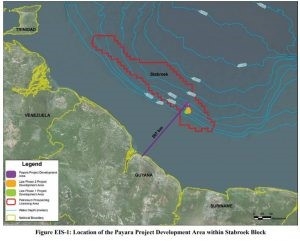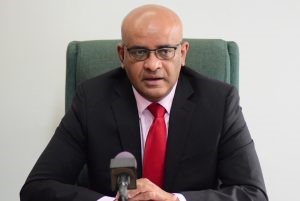PPP must not repeat APNU+AFC’s mistakes by ignoring advice to renegotiate Stabroek deal
In spite of receiving critical advice from regional and international actors on the many ways it could secure maximum value for Guyanese in the Stabroek Block Production Sharing Agreement (PSA), the APNU+AFC regime, driven by other intentions, chose to do otherwise.
The consequence is that Guyana left approximately US$55B or more on the negotiation table. Even after this became known, there were numerous calls to renegotiate the lopsided deal but the coalition refused to correct its actions.
Now that the PPP/C regime is in place, international, regional and local stakeholders are hopeful that the new government would honour its campaign promise to secure maximum benefits from the oil sector.
Specifically reiterating this appeal in his most recent commentary was Dr. Jerry Jailall. The Education Consultant at the North Carolina State Department of Public Instruction, US, insists that the PPP/C administration must not walk the same reckless path as the coalition by failing to renegotiate the unfavourable deal.
Dr. Jailall said that the government can use the opportunity of approving the Payara Field Development Plan to get a better deal for Guyana.
The Education Consultant said, “It is important that the Guyana government’s position indicates that it will not just follow the beat of its own drum and ignore anyone else…If we don’t renegotiate now, when? After we rush into another bad deal? We need to maximize our benefits from each and all of our wells.”
He was also keen to note comments by Vice President, Dr. Bharrat Jagdeo, some weeks ago that the government intends to strengthen the Local Content Policy and have it supported by legislation so that Guyanese can benefit via the supply chain. Dr. Jailall also recalled Dr. Jagdeo’s comments that talks would be held with ExxonMobil about the development of gas fields, getting a good price for the nation’s gas, and working out the details on how it will benefit the people.

Dr. Jailall said that all of this is well and good but stressed that the nation still has a right to a royalty that is higher than the current two percent in the Stabroek Block deal.
The Education Consultant said: “…the biggest benefits from oil come from the royalty, the profit sharing, Exxon paying taxes which they don’t do now, and efficiently auditing the costs submitted by Exxon to make sure we are not getting robbed of $US billions through inflated expense reports.”
Dr. Jailall added, “…The local content is important, but that’s not where the biggest gains come from and it is not a substitute for better royalties or profit share. The biggest beneficiaries from a better local content policy would be the middlemen businesses, not the poor people of Guyana…”
He went on to explain that the trickle-down effect from local content is not as huge as if one were to renegotiate for a better royalty, profit share, and/or requiring ExxonMobil to pay taxes in keeping with the tax laws.
Dr. Jailall said, too, that for every 1% increase in royalty, at US$50 per barrel, Guyana stands to gain an estimated US$4 billion.
“That’s more than you can get on a better local content policy, which simply refers to Guyanese companies getting some of the oil related contracts for goods and services, and Guyanese getting oil jobs and training,” the Education Consultant contended.
Dr. Jailall who has served in the education sector for 25+ years in Guyana, the Bahamas, the USA and the United Arab Emirates, contended that the government must understand that getting the maximum benefits for the nation’s poor, destitute people, is not a multiple-choice question where the answer is A, B, C, or D. He stated unequivocally that the answer is E – “All of the above.”






















